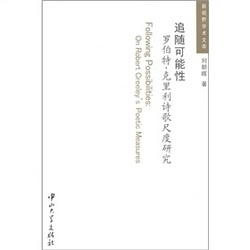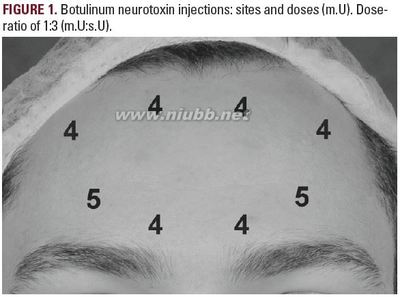今天一位朋友问我presumably和probably有何区别,我张
口结舌无言以对。立即查资料,经过一番探索,对这个知识点进
行扩散研究,暂定为以下规则:
英文中表达“可能性”概念的词非常多,常用的有:
absolutely, definitely, certainly,surely, of course,
apparently, presumably,probably, likely, perhaps,
possibly,maybe
这些词之间除了在句子中的位置不同,在口语和笔头用语
上的语法规则有差别以外,在意义上有何区别呢?我想到其表达
的“可能性”不一样,到底有何不一样?经查证,有的是可以互
换使用的,表达同样程度的可能性,有的则有强弱变化,以下用
数学公式“>”号表达肯定程度由强到弱的变化:
absolutely>definitely>certainly(surely)>of
course>apparently>presumably>probably(likely)>perhaps
(maybe, possibly)>unlikely
由上图可见,最肯定的是absolutely,最不肯定的是
unlikely。下面具体比较每一个词,先看其英文释义:
absolutely:
--totally and completely
--completely and in every way
--used to emphasize that sth. is completely true
--Some people say absolutely as an emphatic way of
saying yes or of agreeing with someone. They say
absolutely not as an emphatic way of saying no or of
disagreeing with someone.
Example Sentences:
1) You're absolutely right.
2) He made it absolutely clear.
3) Jim knew absolutely nothing about the business when he joinedthe firm.
definitely:
--without any doubt
--You use definitely to emphasize that something is the
case, or to emphasize the strength of your intention or
opinion
--a way of emphasizing that sth is true and that there
is no doubt about it
Example Sentences:
1) I definitely remember sending the letter.
2) "Was it what you expected?" "Yes, definitely."
3) "Do you plan to have children?" "Definitely not!"
4) Some old people want help; others most definitely do not.
certainly:
--without any doubt
--used to agree or give your permission
--You use certainly to emphasize what you are saying
when you are making a statement.
--(used in answer to questions) of course
--used to indicate unreserved assent
Example Sentences:
1) "May I see your passport, Mr Scott?" "Certainly."
2) Do you think all this money will change your life?" "Certainlynot."
3) It's certainly a big problem.
4) Without treatment, she will almost certainly die.
5) Certainly, the early years are crucial to a child'sdevelopment.
6) I'm certainly never going there again.
surely:
--used to show that you think something must be true,
especially when people seem to be disagreeing with you.
--You use surely to emphasize that you think something
should be true, and you would be surprised if it was not
true.
--used to show that you are almost certain of what you
are saying and want other people to agree with you.
Example Sentences:
1) You must have heard about the riots, surely?
2) There must surely be some explanation.
3) Surely we can't just stand back and let this happen?
4) Surely we should do something about it?
5) It's surely only a matter of time before he is
found, isn't it?
of course:
--used to show that other people probably already know
what you are saying is true, or expect to hear it
--You say of course to suggest that something is normal,
obvious, or well-known, and should therefore not
surprise the person you are talking to.
--used to emphasize that what you are saying is true or
correct:
Example Sentences:
1) Well, she won, of course.
2) You should of course keep copies of all yourcorrespondence.
3) Of course there will be some difficult times ahead.
4) "Don't you like my mother?" "Of course I do!"
5) "Will you be there?" "Course I will." (也可写作coure)
apparently:
--used to say that you have heard that something is true,
although you are not completely sure about it:
--according to the way someone looks or a situation
appears, although you cannot be sure:
Example Sentences:
1) Apparently the company is losing a lot of money.
2) I wasn't there, but apparently it went well.
3) She turned to face him, her anger apparently gone.
presumably:
--used to say that you think something is probably true
--If you say that something is presumably the case, you
mean that you think it is very likely to be the case,
although you are not certain.
--used to say that you think that sth is probably true
Example Sentences:
1) It's raining, which presumably means that your
football match will be cancelled.
2) Presumably this is where the accident happened.
3) You'll be taking the car, presumably?
4) I couldn't concentrate, presumably because I was
so tired.
probably:
--used to say that something is likely to happen, likely
to be true etc:
--If you say that something is probably the case, you
think that it is likely to be the case, although you are
not sure.
--used to say that sth is likely to happen or to be true
Example Sentences:
1) You're probably right.
2) It'll probably be OK.
3) It was the best known and probably the most
popular of her songs.
4) "Is he going to be there?" "Probably."
5) "Do we need the car?" "Probably not."
6) As you probably know, I'm going to be changing jobs soon.
likely:
--probably
--You use likely to indicate that something is probably
the case or will probably happen in a particular
situation. = probable
(In standard BrE the adverb likely must be used with a
word such as most, more or very: We will most likely see
him later. In informal NAmE likely is often used on its
own)
Example Sentences:
1) I'd very likely have done the same thing in yoursituation.
2) We will likely see him later.
3) He said that he would likely run for President.
perhaps:
--used to say that something may be true, but you are
not sure [= maybe]:
--You use perhaps to express uncertainty, for example,
when you do not know that something is definitely true,
or when you are mentioning something that may possibly
happen in the future in the way you describe. = maybe
--possibly SYN maybe:
Example Sentences:
1) Perhaps she's next door.
2) Perhaps it will snow tomorrow.
3) It won't take so long next time, perhaps.
4) "I don't think you understand." "Well, perhaps not."
5) "Are you going to come?" "Perhaps. I'll see how I feel."
6) Perhaps he's forgotten.
possibly:
--used when saying that something may be true or likely,
although you are not completely certain [= perhaps, maybe]
--You use possibly to indicate that you are not sure
whether something is true or might happen.
--used to say that sth might exist, happen or be true,
but you are not certain
SYN perhaps:
Example Sentences:
1) It was possibly their worst performance ever.
2) She found it difficult to get on with her,
possibly because of the difference in their ages.
3) "Will you be around next week?" "Possibly."
上述英文释义及例句全部摘自三大权威字典“朗文当代”、
“柯林斯”和“牛津”。由英文释义和例句可以推论这些可能性
之间的对比关系:
absolutely>definitely>certainly=surely>of
course>apparently>presumably>probably=likely>perhaps
=maybe=possibly>unlikely
中文对应大概是:
绝对>一定>肯定、确信>当然>显然>很可能>可能、也许>或
许、大概>不可能
最难区分的是surely/certainly和of course,很多人认为
二者没有区别,但是窃以为还是有非常细微的差别的。凭语感,
当我说certainly或者surely时,内心是比较确定的,是比较自
信的,坚信你一定会同意,因为我是有客观依据的;但是,当我
说of course时,心里虽然比较确信,但是主观意味要强得多,
是我主观地想让你相信,这里的“主观”意味已经让我的“自信”
有所削弱,虽然不甚明显。
试对比英文释义:
--You use surely toemphasize that you think something
should be true, and youwould be surprised if it was not
true.
--You say of course tosuggest that something is normal,
obvious, or well-known, andshould therefore not
surprise the person you aretalking to.
由surely和of course的不同英文释义看来,surely是确
信对方会相信,如果他不相信,我会感到吃惊;of course是确
信我说出来的不会让别人觉得吃惊,因为是常识,是他应该并且
事实上也知道的。这里两个吃惊的对象不一样,则表达的肯定程
度有非常细微的差别。
unlikely是“不可能”,这很好理解,不过,如果再把可能
性继续往下降呢?分别又如何用英文表达呢?我得出了一个有趣
的公式:
absolutely>definitely>certainly(surely)>of
course>apparently>presumably>probably(likely)>perhaps
(maybe,possibly)>unlikely>perhaps not, maybenot,
possiblynot>presumably not>apparentlynot>of course
not>certainly not,surely not>definatelynot>absolutely
not.
呵呵,看来学英语也可以结合数学知识,找出单词之间意思
递进或者递减的规律,这样就增加了学习的趣味性,提高了效率。
 爱华网
爱华网


